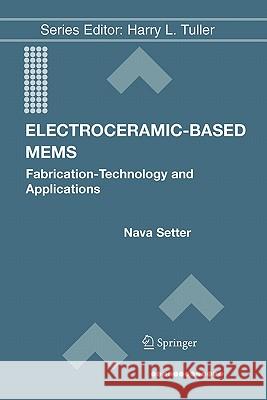Electroceramic-Based Mems: Fabrication-Technology and Applications » książka
Electroceramic-Based Mems: Fabrication-Technology and Applications
ISBN-13: 9781441936042 / Angielski / Miękka / 2010 / 414 str.
The concept of micromachining of silicon to form micron-scale structures such as cantilevers, free-standing bridges, membranes, and channels and its combination with microelectronics fabrication methodology and technology has resulted in the em- gence of a new category of functional systems called MEMS (microelectomechanical systems). MEMS are miniature systems containing devices or arrays of devices that combine electronics with other components such as sensors, transducers and actuators, and are fabricated by IC (Integrated Circuits) batch processing techniques. The ?eld of electroceramics (inorganic, non-metallic materials, often polycr- talline, with useful electrical and other functional properties) provides a vast number of active materials for sensors, actuators, and electrical and electronic components. Electroceramic thin ?lms can add therefore many useful functionalities to MEMS. At the same time, because the fabrication of ceramics is commonly a high temperature process that often necessitates an oxygen containing atmosphere, because most cer- ics are inert and corrosion resistant, and because the properties of electroceramics are verysensitivetotheprocessingconditions, theintegrationofelectroceramiclayersonto silicon or other substrates and their patterning into functional elements need complex technologies that are still under development. This situation is re?ected in the current positionofelectroceramic-basedMEMSinthemarket: Whilethepotentialisexcellent, ?rst devices are being commercialized only these present days.











